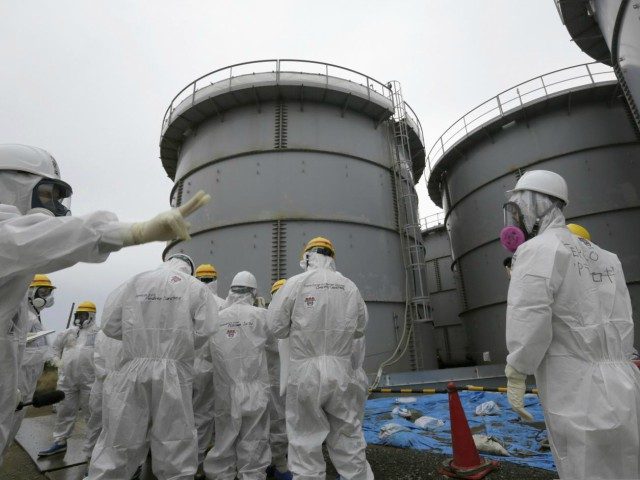Two remote villages in Japan’s northwest have agreed to start the first stage of a survey process that would allow the federal government to dispose of thousands of tons of nuclear waste in the ground beneath the communities, the South China Morning Post reported on Monday.
Suttsu town and Kamoenai village are located 25 miles apart on the remote northwest coast of Hokkaido, Japan’s northernmost main island. Their local councils recently approved plans by the Nuclear Waste Management Organization of Japan (NUMO) to determine whether the communities’ underground layers are suitable for housing a nuclear storage facility.
NUMO on November 17 began the first stage of a three-step examination process in which it will “spend about two years checking geographical layers and the strength of bedrock in the two municipalities, based on geological maps and academic papers” in a process known as a literature survey. “Based on the first-stage work, the institute will pick candidate locations for a second-stage survey, called a preliminary investigation, in which drilling work would be carried out to analyze geographical layers,” the Japan Times reported on November 18.
Suttsu and Kamoenai will each receive up to ¥2 billion, about $19.23 million, in state subsidies for agreeing to undergo the first-stage survey. Both municipalities “have been under financial stress due to the [area’s] declining fishing industry and population,” Japan’s Mainichi newspaper reported on October 8.
Should the municipalities qualify for the second-stage survey, they would stand to earn an additional ¥7 billion, or about $67 million, “regardless of whether or not they proceed to the Stage 3 analysis,” the Japan Times noted on October 13.
Hokkaido Governor Naomichi Suzuki and local fisheries associations have openly opposed the idea of hosting nuclear storage facilities on the island, citing the environmental risks associated with such sites. Radioactive materials stored in the proposed nuclear bunker could seep into the region’s underground water sources and rise to the surface; underground nuclear waste is also susceptible to earthquakes and volcanic activity.
Suttsu residents have accused their municipal leader of ignoring the majority of local sentiment, reportedly against the nuclear waste facilities, to apply for the phase one survey.
“In Suttsu, the decision to apply was made by town head Haruo Kataoka. … His decision has angered many town residents and others in the surrounding region. Kataoka said that while he knows many residents are opposed, he also senses a large amount of support toward applying for the preliminary survey,” the Japan Times reported in October.
“In apparent protest to the municipalities’ move, a small fire broke out at Kataoka’s home in the early hours of Thursday [October 8], causing no injuries,” the Mainichi revealed. “Police later arrested a 77-year-old male resident of the town on suspicion of arson in the incident.”

COMMENTS
Please let us know if you're having issues with commenting.